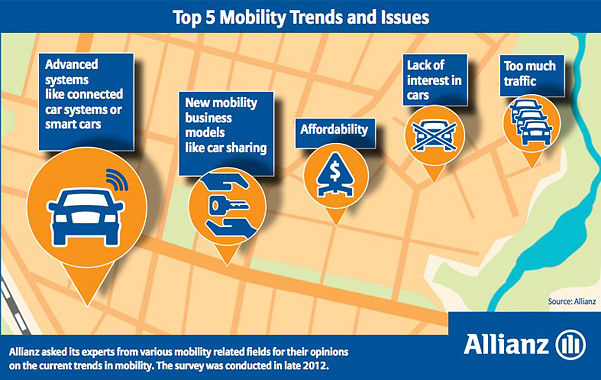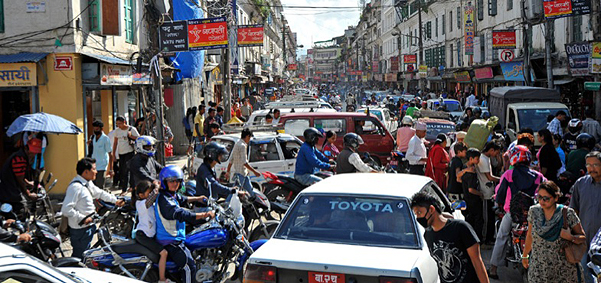According to the new “Allianz Risk Pulse”, Allianz mobility experts agree that advanced systems are revolutionizing the vehicles and increasing road safety, new consumer emancipation is leading to new mobility business models and the individually owned car is loosing some of its attractiveness due to considerations of affordability, traffic congestions and less interest in cars than a generation ago.
“When it comes to purchasing mobility, consumer decisions now increasingly include issues such as the carbon footprint and social responsibility,” says Clem Booth, Member of the Board of Management of Allianz SE.
Especially people in cities are turning to car sharing, using bicycles or public transport, and relying more and more on e-shopping and home delivery. The UK has noted a decreased need for shopping trips (National Travel Survey, 2011) and Europe notes less interest in young people to obtain drivers licenses (IFMO Study, 2011).

